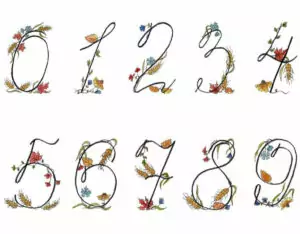Learning how to bid farewell in different languages adds depth to our communication skills. If you’re beginning to learn German, it’s essential to understand the various ways to say goodbye in this expressive language. In this article, we’ll explore 13 different ways to bid adieu in German, ranging from casual to more formal expressions. Let’s dive in and expand your German vocabulary!

✅ AI Essay Writer ✅ AI Detector ✅ Plagchecker ✅ Paraphraser
✅ Summarizer ✅ Citation Generator
Goodbye in German: Tschüss
One of the most commonly used ways to say “goodbye” in German is “Tschüss.” This short and casual expression is perfect for everyday conversations. Interestingly, “Tschüss” can also be transformed into “Tschüssi,” which means “little goodbye” using diminutives and augmentatives in the German language.
Bye in German: Ciao
German, like many other languages, has borrowed the Italian word “ciao” as a way to say goodbye. You can use this versatile word in informal and semi-formal situations with German speakers.
See You Again: Auf Wiedersehen
When searching for how to say “bye” in German, you’ll often come across “auf Wiedersehen.” However, this expression actually means “see you again” or “until I see you again.” The word “wieder” translates to “again,” while “sehen” means “to see.” Remember to use this phrase when you expect to meet the person in the future.
See You Soon: Bis bald
If you’d like to convey the message of seeing someone soon, “bis bald” is the phrase to use. “Bis” means “till” or “until,” and “bald” translates to “soon.”
Good Night: Gute Nacht
When parting ways for the evening, you can bid farewell by saying “Gute Nacht.” Use this phrase to wish someone a good night in German. It’s interesting to note that “gut,” meaning “good,” takes on a different form, becoming “guten” in greetings such as “Guten Morgen” and “Guten Tag.” However, when preceding “Nacht,” it changes to “Gute” because “Nacht” is a feminine word.
See You Later: Bis später
Apart from saying “see you soon,” you can also opt for “see you later” in German, which is “bis später.” If you prefer an alternative phrase, consider using “bis dann,” which more literally means “see you then.”
See You Then: Wir sehen uns dann
There’s yet another way to bid farewell in German, and that’s “Wir sehen uns” which means “we’ll see each other.” By adding “dann,” you can specify “see you then.” This expression is useful when making plans to meet up in the future.
Until Next Time: Bis zum nächsten Mal
To express “see you later” or “see you next time” to someone you regularly encounter, use “bis zum nächsten Mal.” This phrase conveys the idea of meeting again in the future.
Talk to You Later: Wir sprechen uns bald/Wir sprechen uns später
Instead of focusing on physically seeing someone, you might want to indicate that you’ll talk to them later. In German, you can say “Wir sprechen uns bald” or “Wir sprechen uns später” to convey this message. Both variations are commonly used.
Have a Good Day: Schönen Tag (noch)
When parting ways early in the day, you can wish someone to “have a good day” or “enjoy the rest of their day” by saying “Schönen Tag noch” in German. Note that the word “noch” can be omitted without changing the meaning.
Have a Good Weekend: Schönes Wochenende
As the school or work week comes to an end, you can bid farewell with “Schönes Wochenende” to wish someone a good weekend in German.
Enjoy! Have Fun!: Viel Spaß!
Finally, when you want to express the sentiment of “Enjoy!” or “Have fun!” to someone, you can use the phrase “Viel Spaß!” as you part ways. This expression perfectly captures the spirit of enjoyment and fun.
Conclusion
Mastering how to say goodbye in German expands your linguistic abilities and allows you to connect more effectively with native speakers. The 13 expressions we’ve covered in this article provide you with a range of options, from casual to more formal farewells. Practice incorporating these phrases into your conversations to leave a lasting impression and enhance your language skills in German. Viel Spaß beim Lernen! (Have fun learning!)
FAQ
What is the translation for “goodnight” in German?
The translation for “goodnight” in German is “Gute Nacht.”
How do you say “see you soon” in German?
To say “see you soon” in German, you can use the phrase “Bis bald.”
What are alternative ways to say goodbye in the German language?
There are several alternative ways to say goodbye in German, including:
- Tschüss: A common and casual way to say “goodbye.”
- Auf Wiedersehen: Literally meaning “until we see again,” it’s a formal way to bid farewell.
- Bis später: Translating to “until later,” it is used to say “see you later.”
- Bis dann: Similar to “bis später,” it means “see you then.”
How do you say “have a good day” in German?
To express “have a good day” in German, you can say “Schönen Tag (noch).” The word “noch” is optional and can be omitted.
What is the German phrase for “have a good weekend”?
The German phrase for “have a good weekend” is “Schönes Wochenende.”
How can I express “enjoy” or “have fun” in German?
To express “enjoy” or “have fun” in German, you can use the phrase “Viel Spaß!”
Can you recommend phrases for “until next time” in German?
Yes, you can use the phrase “Bis zum nächsten Mal” to express “until next time” in German.
How do you say “talk to you later” in German?
To say “talk to you later” in German, you can use either “Wir sprechen uns bald” or “Wir sprechen uns später.” Both phrases convey the same meaning.
Follow us on Reddit for more insights and updates.





Comments (0)
Welcome to A*Help comments!
We’re all about debate and discussion at A*Help.
We value the diverse opinions of users, so you may find points of view that you don’t agree with. And that’s cool. However, there are certain things we’re not OK with: attempts to manipulate our data in any way, for example, or the posting of discriminative, offensive, hateful, or disparaging material.